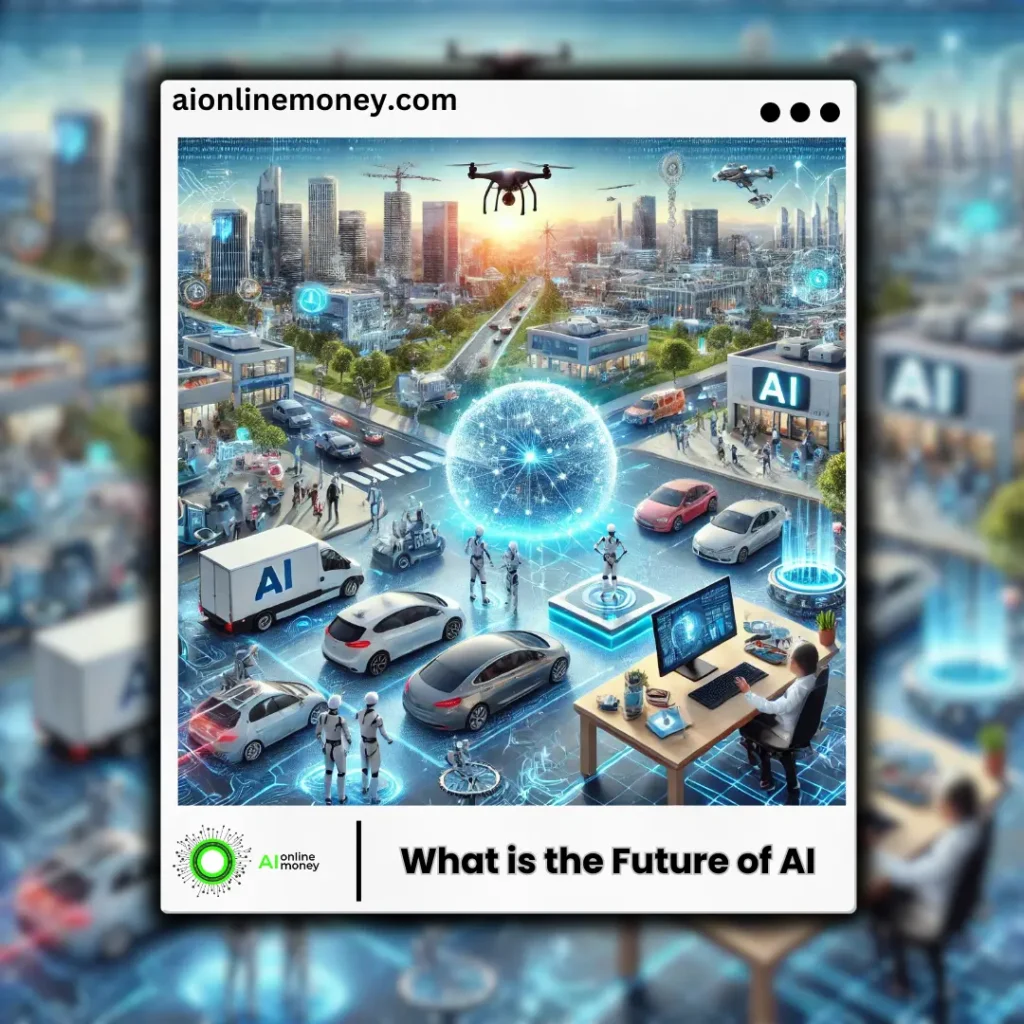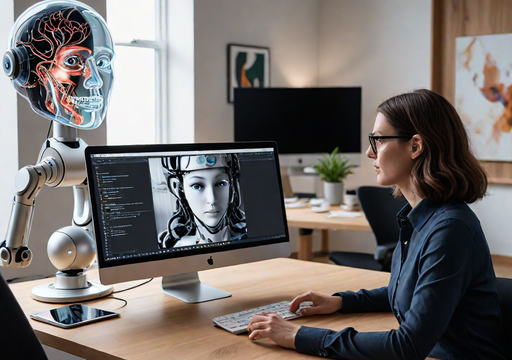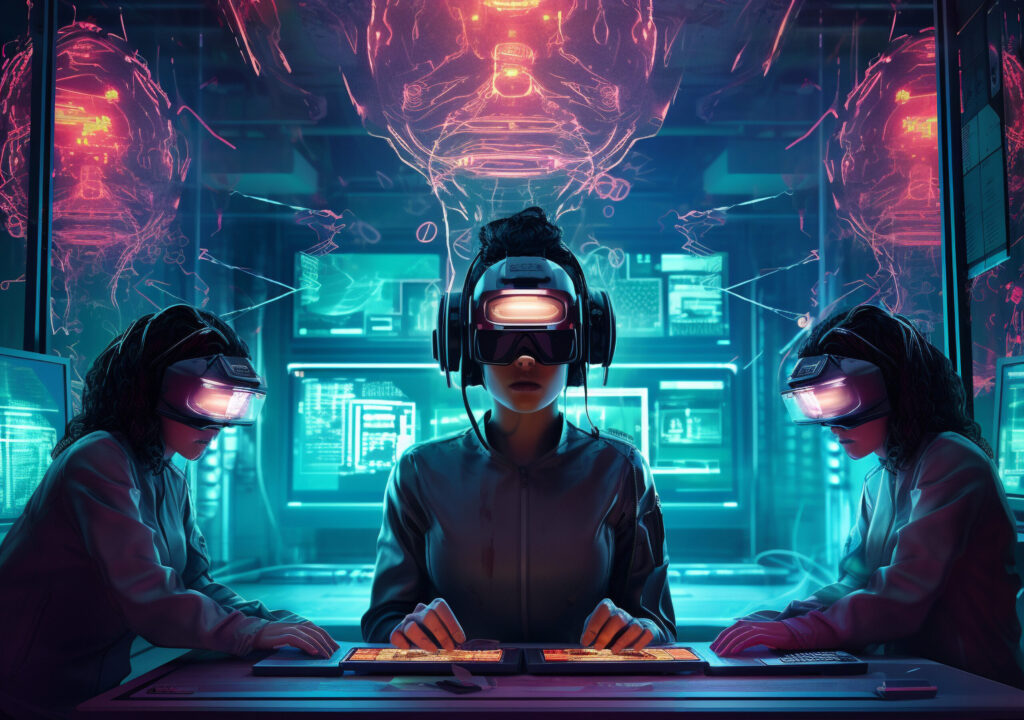Table of Contents
Artificial Intelligence has proven its value from the past decade, from transforming many industries to shaping our daily lives. AI is no longer a futuristic concept; it is already here, from virtual assistants like Siri & Alexa to self-driving cars and very advanced medical diagnoses, AI is shaping every industry. But what is the future of AI, and what does it look like? Should it will impact business, jobs and society? In this blog, we will explore what is the future of AI, its benefits, challenges, and some ethical considerations that come with its rapid development.
The Current State of AI
Before going into the future, first we will look where AI stands today. Artificial Intelligence has made very important progresses in areas like:
Natural Language Processing (NLP) – AI has the capacity to understand and generate human languages and create chatbots and virtual assistants more effectively.
Machine Learning (ML) – Machine learning is the process in which AI system analyzes very large amount of data and continuously learn from that particular data, and improves from time to time without clear programming.
Computer Vision – AI can analyze images and videos used in facial recognition, some self-driving cars and medical imaging.
Automation – Artificial Intelligence-powered robots and software are taking over automotive tasks in industries, many industries are utilizing AI from manufacturing to finance.
These developments are just beginning. Artificial Intelligence is fully set to transform many more sectors in the coming years.
What is the Future of AI?
- AI in Everyday Life:
AI has the potential to become the biggest part of our daily lives. Smart homes powered by AI will optimize the usage of energy, suggest personalized recommendations and also predict maintenance needs before problems arise. AI-driven your personal assistants will handle various tasks like scheduling, shopping and answering complex questions very easily.
AI will be of benefit in various tasks, self-driving cars will become more reliable and help to reduce accidents and easy transportation. Also in the education sector, Artificial Intelligence will provide personalized learning experiences based on students strengths and weaknesses. This was how AI will change our daily life and further we will clear what is the future of AI and the future of work.

- AI in Healthcare:
Artificial Intelligence in healthcare is shaping the overall health sector. In AI and the future, AI can already detect diseases like cancer in early stages with higher accuracy than any human doctors. In the future, AI could:
- Develop new drugs faster by analyzing vast amounts of medical data.
- AI can make personalized treatment plans based on a patient’s genetic profile.
- Monitor patients in real-time, predicting health issues before they become serious.
Also, robotic surgeons, which are powered by AI, may perform complex surgeries with high level of precision; this helps to reduce human errors.
AI could also improve mental health treatment by providing health therapy through AI-powered chatbots and virtual counselling.
- AI in Business and Industries:
Artificial Intelligence and Machine learning is already transforming businesses by automating their work tasks, also improving efficiency and enabling data-driven decision-making, let’s see what is the future of AI in business and industries:
- AI–powered chatbots fully replaced traditional customer service, plus it offers personalized support.
- Optimize supply chains by predicting demand and reducing waste.
- Enhance cybersecurity by detecting and preventing cyber threats in real time. With the use of AI, Businesses and Industries have improved their growth and expanded their reach.
AI-driven automation will also revolutionize industries like agriculture, where AI-powered drones and robots will monitor crops, detect diseases, and optimize irrigation.
- AI and the Job Market:
One of the biggest concerns or problems is about AI is its impact on jobs in the market. As the AI automated the repetitive tasks, some jobs are now outdated. But many people don’t know AI is creating new jobs opportunities in the market. The future is really great, kindly we require to shift in skills, with a focus on:
- AI programming and development
- Data analysis and interpretation
- Cybersecurity
- Human-AI collaboration and many more
While some traditional or outdated jobs will disappear, But what is the future of AI and the future of work? AI will create new roles in the fields like Machine learning engineering and AI-assisted decision-making. Also, the government and many organizations must focus on reskilling workers to adapt the AI-driven economy. The future is really great and AI is making it more better.
- Ethical and Social Challenges of AI:
As AI technology becomes more powerful, ethical concerns will grow. Some important challenges include:
- Bias in AI Algorithms – AI systems can inherit biases from the data they are trained on, leading to unfair treatment in hiring, lending, and law enforcement.
- Privacy Issues – AI-powered surveillance and data collection increase concerns about personal privacy and security issues.
- AI in Warfare – Autonomous weapons powered by AI and the future can provide serious issues if it not regulated properly.
To ensure AI benefits society, governments and organizations must establish ethical guidelines and regulations. Transparency and accountability in AI decision-making will be essential for building public trust.
- The Rise of Artificial General Intelligence (AGI):
Today’s AI systems are specifically designed for some tasks, also known as narrow AI. However, researchers are working towards AGI (Artificial General Intelligence). AGI has the capacity to perform intellectual tasks a human can do.
AGI could:
- It solves complex global problems like climate change and disease control.
- AGI could automate creative tasks like writing books, composing music, or designing products.
- This leads to superintelligent AI, which could surpass human intelligence.
While AGI has vast potential, it also raises concerns about its use and control and its impact on humanity. Ensuring that AGI aligns with human values will be the main challenge for future AI researchers.

- The Role of AI in Sustainability:
AI-driven solutions could play a very important role in tackling climate change and promoting sustainability.
- Optimizes energy consumption in industries and homes.
- Develop smarter and more efficient renewable energy systems.
- Improve waste management and recycling through automated sorting systems.
By using Artificial Intelligence to analyze environmental data, scientists can better predict climate patterns and develop more effective solutions to battle global warming. The role of AI in sustainability has a very great future.Hope you have cleared doubts about what is the future of AI and the future of work.
Conclusion: Embracing the Future of AI
The future of AI is full of exciting possibilities, but it also comes with challenges that must be addressed. AI will continue to transform industries, improve lives, and create new opportunities, but ethical considerations and regulations will be crucial in ensuring its responsible use.
As AI and the future continues to evolve, individuals and businesses must stay informed and adapt to these changes. Whether through upskilling, embracing AI in business strategies, or advocating for ethical AI practices, preparing for the AI-driven future will be key to success. Hope you have cleared your doubts in the blog about what is the future of AI and the future of work.
The next decade will be a defining period for AI, shaping the way we live, work, and interact with technology. By harnessing AI’s potential responsibly, we can create a future where AI benefits humanity as a whole. If you like this blog, Read AI related blog and news only at AiOnlineMoney.
AI will become deeply and highly integrated into daily life through smart assistants, self-driving cars, AI-powered healthcare, and personalized learning.
While AI has trained to automate the tasks, it will also create new job opportunities in AI development, data analysis, cybersecurity, and human-AI collaboration.
There are many challenges like bias in algorithms, ethical concerns, privacy risks, and potential misuse in warfare
AI can optimize energy consumption, improve waste management, help to improve renewable energy efficiency, and predict climate patterns, making it a valuable tool in tackling environmental challenges.



